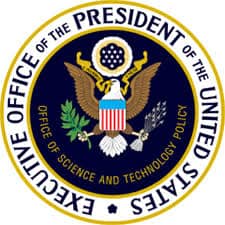The 2021 Presidential Memorandum on Restoring Trust in Government Through Scientific Integrity and Evidence-Based Policymaking charges the Office of Science and Technology Policy to (1) review agency scientific integrity policy effectiveness and (2) to develop a framework for regular assessment and iterative improvement of agency scientific integrity policies and practices (Framework). In January, the Biden Administration released the Framework. It includes a “first-ever Government-wide definition of scientific integrity,” a roadmap of activities and outcomes to achieve an ideal state of scientific integrity, a Model Scientific Integrity Policy, as well as critical policy features and metrics that OSTP will use to iteratively assess agency progress. Here is that definition:
Scientific integrity is the adherence to professional practices, ethical behavior, and the principles of honesty and objectivity when conducting, managing, using the results of, and communicating about science and scientific activities. Inclusivity, transparency, and protection from inappropriate influence are hallmarks of scientific integrity.
The 2021 Presidential Memorandum on Restoring Trust in Government Through Scientific Integrity and Evidence-Based Policymaking also charges OSTP and NSTC to “review agency scientific integrity policies and consider whether they prevent political interference in the conduct, management, communication, and use of science …” The “Model Scientific Integrity Policy for United States Federal Agencies” says this:
It is the policy of this agency to: 1. Prohibit political interference or inappropriate influence in the funding, design, proposal, conduct, review, management, evaluation, or reporting of scientific activities and the use of scientific information.
Ensure that agency scientists may communicate their scientific activities objectively without political interference or inappropriate influence, while at the same time complying with agency policies and procedures for planning and conducting scientific activities, reporting scientific findings, and reviewing and releasing scientific products. Scientific products (e.g., manuscripts for scientific journals, presentations for workshops, conferences, and symposia) shall adhere to agency review procedures.
It defines these terms:
Political interference refers to interference conducted by political officials and/or motivated by political considerations.
Inappropriate influence refers to the attempt to shape or interfere in scientific activities or the communication about or use of scientific activities or findings against well-accepted scientific methods and theories or without scientific justification.
I found it rather interesting, given the way the these terms are used, that the 2021 Presidential Memorandum on Restoring Trust in Government Through Scientific Integrity and Evidence-Based Policymaking actually says this:
Improper political interference in the work of Federal scientists or other scientists who support the work of the Federal Government and in the communication of scientific facts undermines the welfare of the Nation, contributes to systemic inequities and injustices, and violates the trust that the public places in government to best serve its collective interests.
Executive departments and agencies (agencies) shall establish and enforce scientific-integrity policies that ban improper political interference in the conduct of scientific research and in the collection of scientific or technological data, and that prevent the suppression or distortion of scientific or technological findings, data, information, conclusions, or technical results.
Deliberate or careless? Could there be “proper” political interference, especially given the distinction made about “inappropriate” influence (which is defined in terms of “interference”)?
Any way, it’s good to know someone is working on this aspect of scientific integrity. And it seems to be helping – compare these results of the Union of Concerned Scientists 2023 surveys of scientists at federal agencies with those from 2018. (Unfortunately, while the 2023 survey includes USDA, it did not include the Forest Service.)

I’m kind of taking the meta-view here, but whom does it consider to be a “scientist”?
“Scientist refers to an individual whose responsibilities include collection, generation, use, or evaluation of scientific and technical data, analyses, or products. This includes, but is not limited to, Federal scientists, contractors, and trainees. It does not refer to individuals with scientific and technical training whose primary job functions are in non-scientific roles (e.g., policymakers, communicators).”
That sounds like my (former) job as a natural resource professional.. “evaluation of scientific and technical data, analyses or products” .. This seems to be another case of the “invisible natural resource professional.”
And as we have seen, people have legitimate disagreements about data and its implications.. I wonder who gets to decide what is “distortion” or “suppression”. I think the people who wrote this need to get out more, even within the federal government.
Thanks, Jon. Lots to discuss here.
“Inappropriate influence refers to the attempt to shape or interfere in scientific activities or the communication about or use of scientific activities or findings against well-accepted scientific methods and theories or without scientific justification.”
Does that apply to research cited in government documentation? Hanson, for example.
I’m not sure if this is what you are getting at, but: “If documents significantly rely on a scientist’s research, identify them as an author, or represent their scientific opinion, the scientist(s) shall be given the option to review the scientific content of proposed documents.” While the thrust of this Framework is protection of the work of federal scientists, this might apply when they use work of outside scientists.
I think this should also be extended to purveyors of ‘agenda-based science’ and unfounded claims of such organizations. If they won’t bring their ‘opinions’ into court, they should not be allowed as ‘evidence’ in conversations about Federal projects.